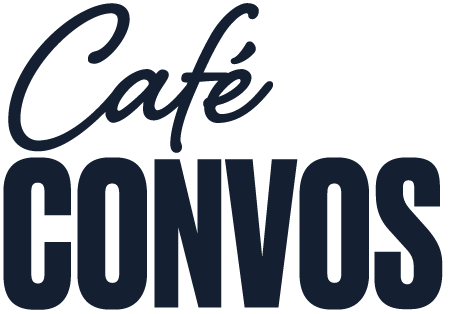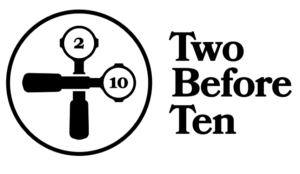
Describe yourself in 3 words?
Three words ha, short, determined, and I guess, a dreamer, in a sense.
How did Two Before Ten come about?
We originally started like most cafes, just with the idea that we liked food and liked the industry. We wanted to own our own place as most people do, and then went down a path of running a business and making all the mistakes that everyone always does, tried to go too big, too early with one particular venue. We came up to Aranda seven years ago, which is at where our home base is now. That really drove us to change the way we run our business. Rather than just being a business for business sake, we’re really much a business for community now.
Community is a big focus for you, tell us more about this?
Community’s everything for us now. We bring value wherever we go. Whether it’s an office block or a suburban store, a lot of the times, we’re the first of the big cafe groups into an area because we always want to go somewhere where other people don’t want to go and bring something to that community that they don’t already have. The community is everything from the local people to the local businesses, that suppliers, for instance. We are always trying to use local suppliers.
We’ve got a reputation for contributing to whatever community we go to. We get approached quite a lot to put new venues into places, particularly in those outer reaches of Canberra where people don’t … It’s not attractive, or it’s not sexy for your business to go there. They’re the spots we’ll go. It’s changed our brand a fair bit.
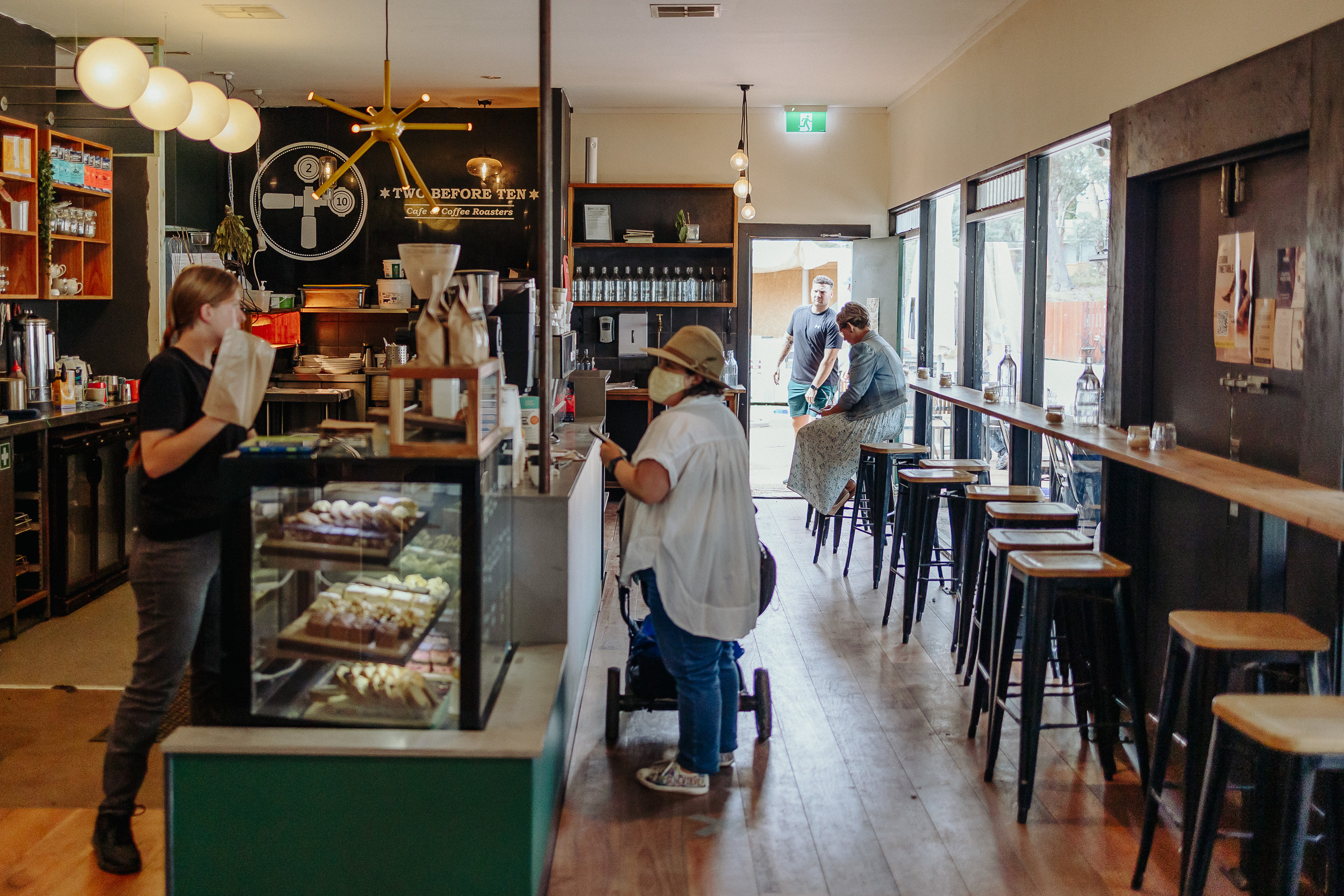
If there was one thing you could attribute to your success, what would it be?
One thing. Working hard!
But honestly, I hate saying community, because it’s such a cliche, but the fact that we have always focused on our customers, not ourselves, and that extends across the business. We’ve very much been a slow build. Based on that community value of looking after everyone that comes in the door, no matter whether there’re seven or 70, they know about specialty coffee, or if they want a large cap with three sugars and a bit of caramel and whatever. When we talk about sustainability from our point of view, that’s sustainable for us, is if you are looking after your community, that’s then what makes the business perpetuate for years and years and years, hopefully.
The idea of community and supporting local is clearly a passion for you, tell us more about this?
We’re quite large now and we’ve got good purchasing power, but rather than using that to drive prices down with our suppliers, we use it to help people start their businesses. Rather than buying from big conglomerate, we’re always trying to buy from a small farm, or the guy that wanted to start growing mushrooms, or someone that wants to put a few beehives in, investing in their business, so then we’ve got access to good boutique suppliers.
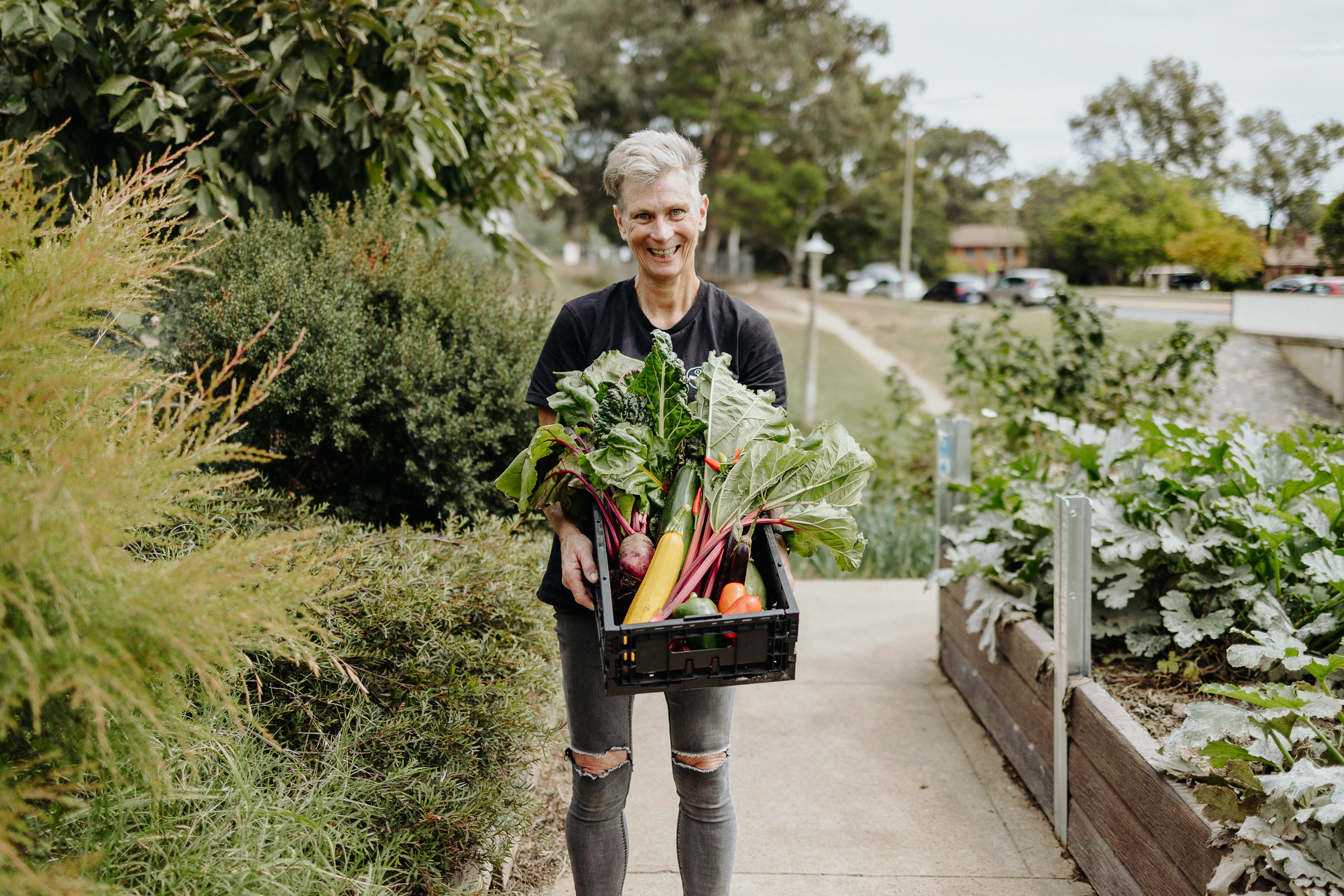
Sustainability is a big thing for Two Before Ten, what are you doing with your Cafes in this space?
The basic stuff, which is more the cliche stuff of no single use plastics, composting as much stuff as you can. We’re pretty, fairly close to zero waste with the amount because we’ve got a commercial composter, the amount of stuff that goes into that. But then, recycling everything. We’ve changed all our retail coffee bags, and our coffee cups to compostable. They go in there. All our delivery with the wholesale coffees in pint tins, which are reusable. It’s literally everything we do, trying to make a decision that’s sustainable in that really broad sense, something that you can do for a thousand years and it won’t upset anything.
Tell us a little more about the Aranda location?
This is a lesson in stupidity in small business. We had overextended and done a big venue that was a black hole, took all our cash, We were basically getting booted. Fortunately, one of the customers that was a regular at our old store, he owned this building, and that had been vacant for 10 or 15 years, because it was an old local shopping center, which, because there’s a bit of a mall down the way that just destroyed this. Yeah, that’s how we got here. It wasn’t really a choice, but when I walked through the door, it was guaranteed. I was on.
If I had have known, I never would’ve done it, how much work it was, but it’s the best thing we’ve done by far. The location’s amazing. We’re five minutes from the city. I didn’t even know this suburb existed, but it’s one of the best suburbs in Canberra. Yeah, this block, we’ve got an acre of land, which you don’t get anywhere else in Canberra. We couldn’t have done everything that we wanted to do. Everything that we’ve done is part of the original vision from walking around on that first day. It’s the same vision that the landlord had. He’d been to the grounds in Alexandria and he wanted that here. We’ve slowly got towards that.
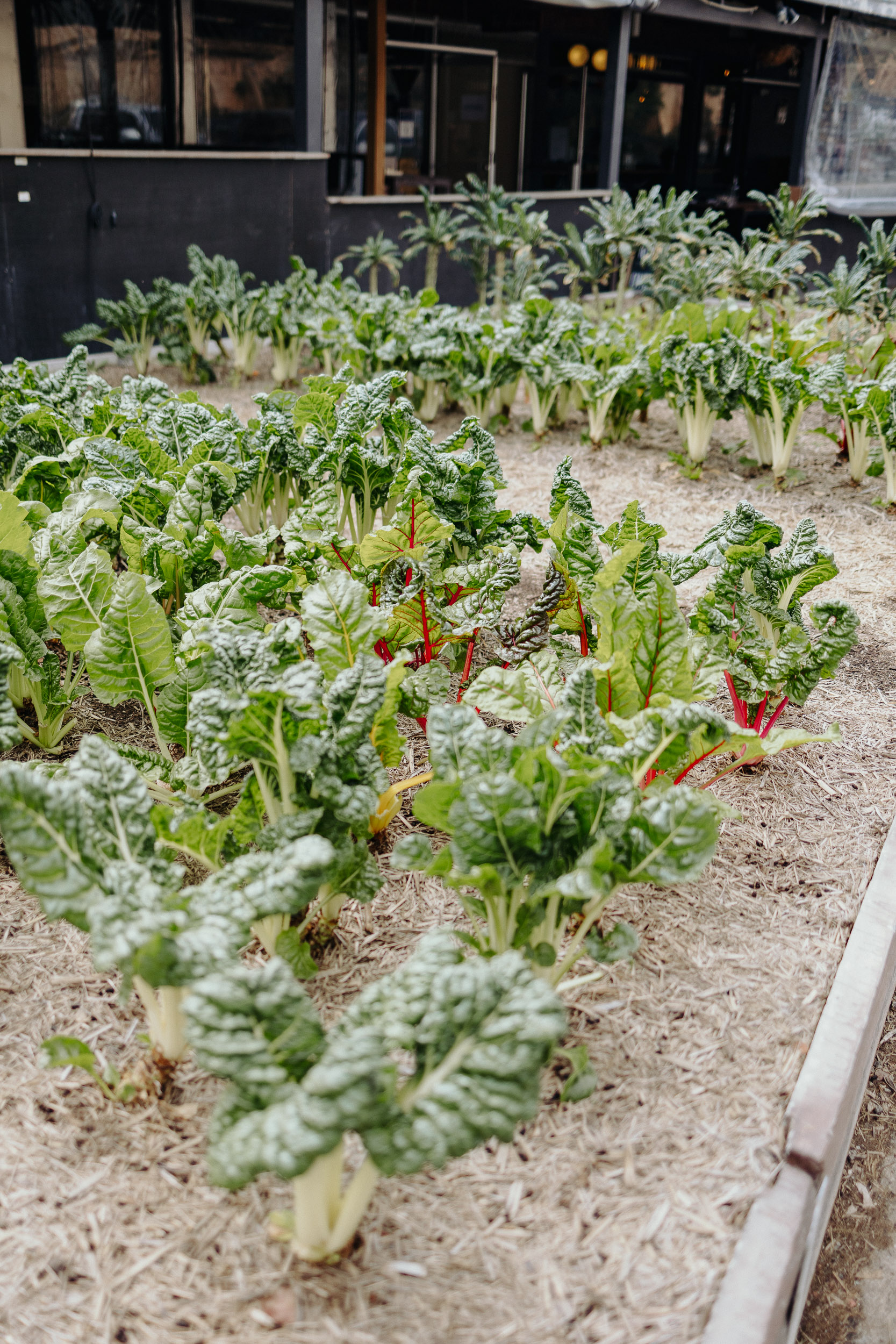
Tell us more about the gardens here at the Aranda site?
It’s really only during COVID that we went massive with the gardens. We’d always been tinkering away, working out what to do, but then with COVID we just had the time to do it and not much else to do, as was the case with everyone. Unfortunately, it was outside work, so we could still do it. Yeah, we put in extra maybe 400 meters of gardens. That’s completely changed the business. We’re now right across the seven stores, or whatever it is. We have a core menu that’s driven by the gardens, by what we can grow here, which in Canberra is quite limited during winter. Yeah, this block and what we can do on this block then drives all of the other arms of the business pretty much. It’s working pretty well, which is good.
Yeah, yeah. Majority here. The original idea around the gardens was getting back to that mentality of the harvest cycle of having gluts of produce, using what we can and then preserving it, either pickling or jamming, or whatever. That’s effectively what we do now. We want to develop a retail line around that, which is in its really early stages. We’ve got branding. We’ve got jars. We’ve got a few things in a few jars, but we haven’t really driven it much yet. But the idea is that yeah, you’ll be able to buy stuff on a supermarket shelf somewhere that we’ve grown from the garden here. What we’re jarring is hopefully what we’re putting on the menus as well.
If there’s one thing you want to be known for, what would it be?
Caring about people. Simple. That’s what we do. All of our fit outs are designed to be comfortable and look after people in whatever way they need to be looked after. If it’s a CBD store, we’ve always got lots of little alcoves, lots of PowerPoints so people can sit on their laptops in the suburbs. They’re always super comfy, so they can loiter for three hours or whatever. Our staff always are people that care about people so that no matter what people want in their day, in their brunch, they get looked after. I think that’s what we’re known for. That’s fairly pervasive.
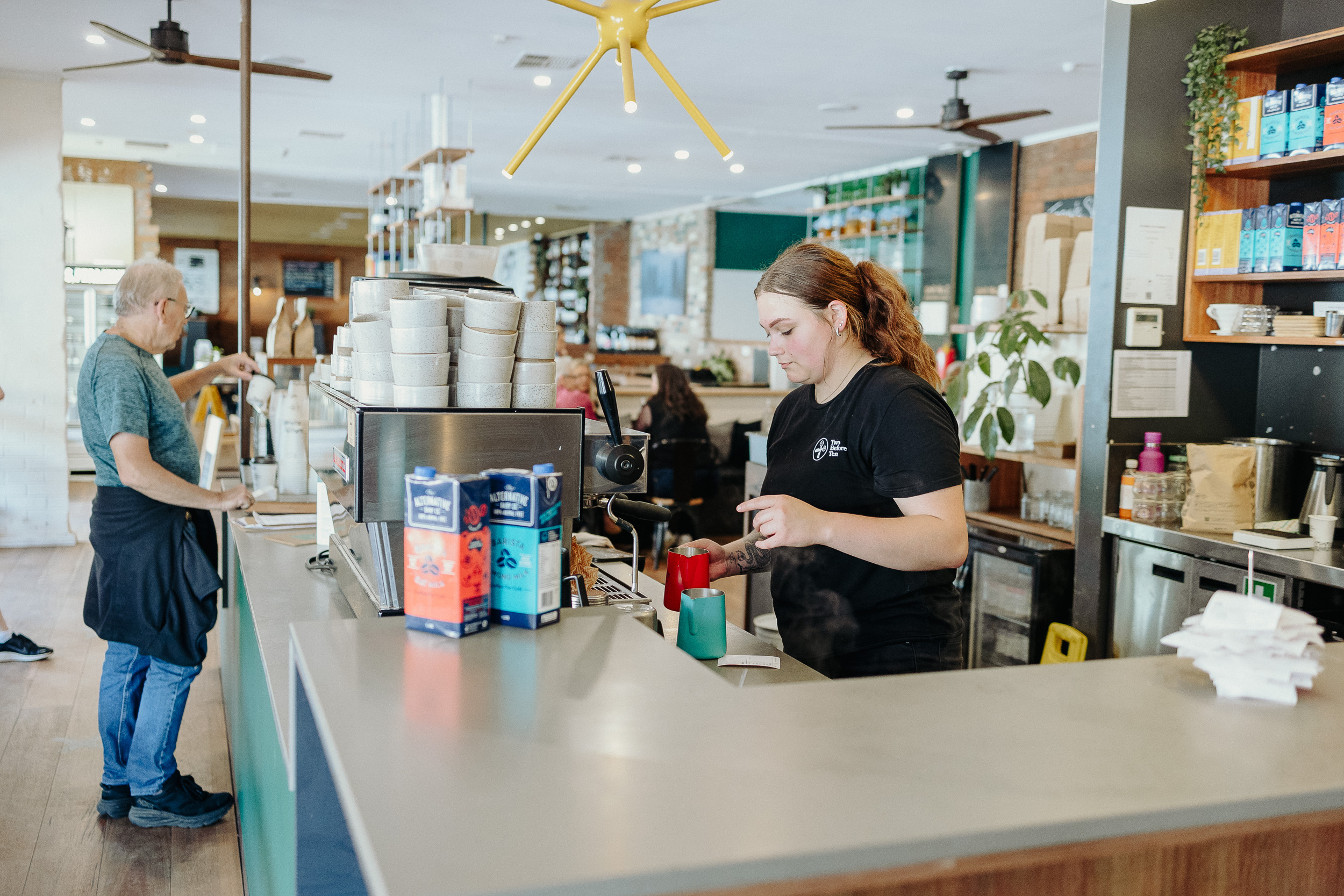
How important is it to you to choose products made with Australian ingredients?
It’s really, really important for us to get as local as we can with our suppliers, we’ve made a big shift in the last few years to focus on local. We went from our deep fryer oil was coming from Malaysia, or somewhere like that. We’ve ended up with using Good Drop out of the Riverina, which is all from Riverina farms. We’ve also switched to The Alternative Dairy Co. milks which are made from local, Australian ingredients. It was simple to move to some products.
There’s, I guess, historically, and because coffee’s a relatively old industry with new products. There are a lot of new products that have come in that aren’t really up to scratch because they’ve been rushed into the market. But with The Alternative, it’s just been on point straight away. It’s a really easy decision to make.

![]()
